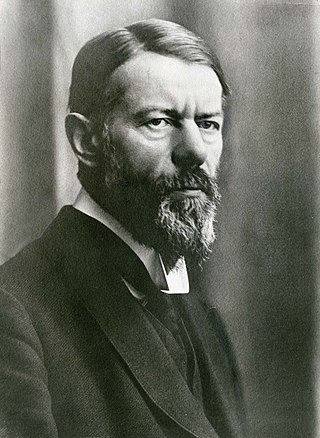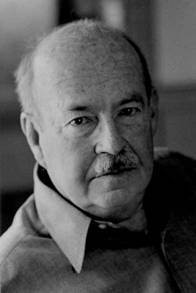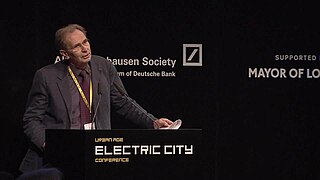Related Research Articles

Maximilian Karl Emil Weber was a German sociologist, historian, jurist and political economist, who is regarded as among the most important theorists of the development of modern Western society. He was one of the central figures in the development of sociology and the social sciences, and his ideas profoundly influence social theory and research.

Talcott Parsons was an American sociologist of the classical tradition, best known for his social action theory and structural functionalism. Parsons is considered one of the most influential figures in sociology in the 20th century. After earning a PhD in economics, he served on the faculty at Harvard University from 1927 to 1973. In 1930, he was among the first professors in its new sociology department. Later, he was instrumental in the establishment of the Department of Social Relations at Harvard.
A mixed economy is an economic system that accepts both private businesses and nationalized government services, like public utilities, safety, military, welfare, and education. A mixed economy also promotes some form of regulation to protect the public, the environment, or the interests of the state.

Social change is the alteration of the social order of a society which may include changes in social institutions, social behaviours or social relations. Sustained at a larger scale, it may lead to social transformation or societal transformation.

The Protestant Ethic and the Spirit of Capitalism is a book written by Max Weber, a German sociologist, economist, and politician. Begun as a series of essays, the original German text was composed in 1904 and 1905, and was translated into English for the first time by American sociologist Talcott Parsons in 1930. It is considered a founding text in economic sociology and a milestone contribution to sociological thought in general.
Modernization theory is used to explain the process of modernization within societies. The "classical" theories of modernization of the 1950s and 1960s drew on sociological analyses of Karl Marx, Emile Durkheim and a partial reading of Max Weber, and were strongly influenced by the writings of Harvard sociologist Talcott Parsons. Modernization theory was a dominant paradigm in the social sciences in the 1950s and 1960s, then went into a deep eclipse. It made a comeback after 1991, when Francis Fukuyama wrote about the end of the Cold War as confirmation on modernization theory and more generally of universal history. But the theory remains a controversial model.

This is a chronological list of works by Max Weber. Original titles with dates of publication and translated titles are given when possible, then a list of works translated into English, with earliest-found date of translation. The list of translations is most likely incomplete.
Neil Joseph Smelser (1930–2017) was an American sociologist who served as professor of sociology at the University of California, Berkeley. He was an active researcher from 1958 to 1994. His research was on collective behavior, sociological theory, economic sociology, sociology of education, social change, and comparative methods. Among many lifetime achievements, Smelser "laid the foundations for economic sociology."

Giovanni Arrighi was an Italian economist, sociologist and world-systems analyst, from 1998 a Professor of Sociology at Johns Hopkins University. His work has been translated into over fifteen languages.

Harry F. Dahms is Professor of Sociology, co-director of the Center for the Study of Social Justice and co-chair of the Committee on Social Theory at the University of Tennessee - Knoxville. Dahms also is an associate editor of Basic Income Studies and Soundings. An Interdisciplinary Journal, and was a founding member of the editorial boards of The Newfound Press, as well as of Anthem Studies in the Political Sociology of Democracy, on whose board he has remained. Since 2022, he has been a member of the AI Tennessee Initiative taskforce.
In sociology, the iron cage is a concept introduced by Max Weber to describe the increased rationalization inherent in social life, particularly in Western capitalist societies. The "iron cage" thus traps individuals in systems based purely on teleological efficiency, rational calculation and control. Weber also described the bureaucratization of social order as "the polar night of icy darkness".

John Richard Urry was a British sociologist who served as a professor at Lancaster University. He is noted for work in the fields of the sociology of tourism and mobility.
Charles Lemert is an American born social theorist and sociologist. He has written extensively on social theory, globalization and culture. He has contributed to many key debates in social thought, authoring dozens of books including his text Social Things: An Introduction to the Sociological Life, 5th edition. From 1982 to 2010, he taught at Wesleyan University in Middletown, Connecticut. He currently lives in New Haven, Connecticut with his family.
In sociological research, functional prerequisites are the basic needs that an individual requires to live above the poverty line. Functional prerequisites may also refer to the factors that allow a society to maintain social order.
The following events related to sociology occurred in the 1950s.
The following events related to sociology occurred in the 1960s.
Bryan Stanley Turner is a British and Australian sociologist. He was born in January 1945 in Birmingham, England. Turner has held university appointments in England, Scotland, Australia, Germany, Holland, Singapore and the United States. He was a Professor of Sociology at the University of Cambridge (1998–2005) and Research Team Leader for the Religion Cluster at the Asian Research Institute, National University of Singapore (2005–2008).

This bibliography of sociology is a list of works, organized by subdiscipline, on the subject of sociology. Some of the works are selected from general anthologies of sociology, while other works are selected because they are notable enough to be mentioned in a general history of sociology or one of its subdisciplines.
Inner-worldly asceticism was characterized by Max Weber in Economy and Society as the concentration of human behavior upon activities leading to salvation within the context of the everyday world.

Medical sociology is the sociological analysis of medical organizations and institutions; the production of knowledge and selection of methods, the actions and interactions of healthcare professionals, and the social or cultural effects of medical practice. The field commonly interacts with the sociology of knowledge, science and technology studies, and social epistemology. Medical sociologists are also interested in the qualitative experiences of patients, often working at the boundaries of public health, social work, demography and gerontology to explore phenomena at the intersection of the social and clinical sciences. Health disparities commonly relate to typical categories such as class and race. Objective sociological research findings quickly become a normative and political issue.
References
- ↑ LC authority file
- ↑ WorldCat
- ↑ Holton, Robert J. The Transition from Feudalism to Capitalism. Houndsmill [u.a.]: Macmillan, 1985. OCLC 311738170 WorldCat item listing
- ↑ Holton, R. J. Cities, Capitalism, and Civilization. London: Allen & Unwin, 1986. WorldCat
- ↑ Reviews: Ari Ylönen, Acta Sociologica, v30 n3/4 (19870101): 401-402; Michael D Kennedy, Social Forces, v66 n3 (19880301): 860-861, David McCrone, British Journal of Sociology, v39 n1 (19880301): 132-133
- ↑ Holton, R. J., and Bryan S. Turner. Talcott Parsons on Economy and Society. London: Routledge & Kegan Paul, 1986 ISBN 9780710207463
- ↑ Holton, R. J., and Bryan S. Turner. Max Weber on Economy and Society. London: Routledge, 1989 ISBN 9780415029162, republished as a sociological classic in 2011
- ↑ "Professor Robert Holton". www.assa.edu.au. Archived from the original on 24 February 2014.